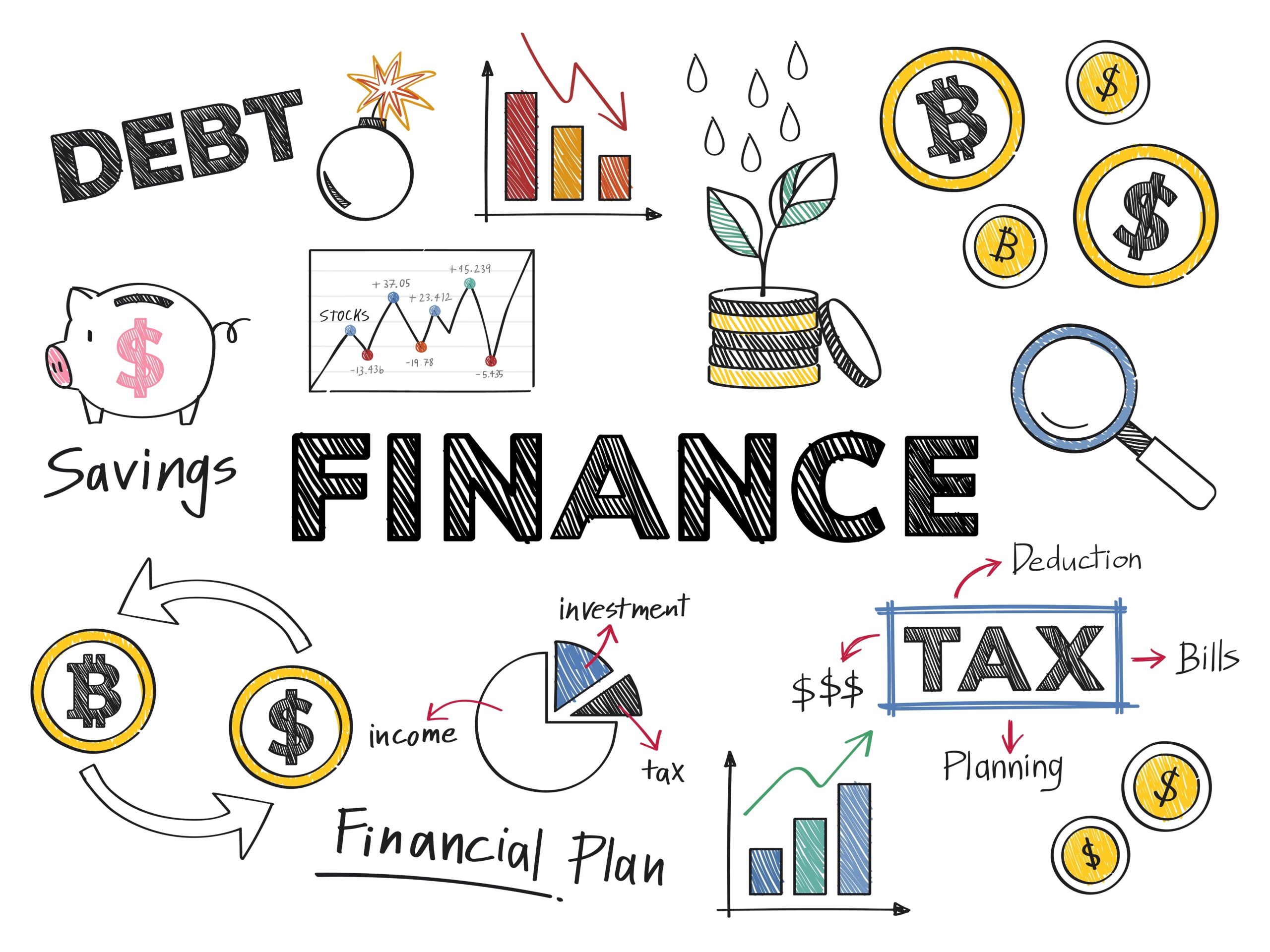Your credit score plays a significant role in your financial life. Whether you’re applying for a loan, a mortgage, or even a job, your credit score can impact your ability to get approved, the interest rates you receive, and even your financial reputation. Understanding how credit works and how to build and maintain a strong credit score is essential for achieving financial success.
In this guide, we’ll break down everything you need to know about credit scores—how they are calculated, why they matter, and most importantly, how you can improve and maintain your credit score over time.
Table of Contents
- What is a Credit Score?
- Why Does Your Credit Score Matter?
- How is Your Credit Score Calculated?
- Tips for Building and Improving Your Credit Score
- How to Maintain a Strong Credit Score
- Common Mistakes to Avoid
- Frequently Asked Questions (FAQs)
- Conclusion: A Strong Credit Score for Financial Success
1. What is a Credit Score?
A credit score is a numerical representation of your creditworthiness—how likely you are to repay borrowed money. Lenders use your credit score to assess the risk of lending you money or extending credit. It helps them determine the terms of the loan, such as interest rates and repayment periods.
In the U.S., the most commonly used credit score is the FICO score, which ranges from 300 to 850. A higher score indicates better creditworthiness and less risk for lenders, while a lower score suggests you may be a higher-risk borrower.
2. Why Does Your Credit Score Matter?
Your credit score affects various aspects of your financial life:
1. Loan and Credit Approval
When you apply for a loan, mortgage, or credit card, lenders will check your credit score to determine if you’re eligible. A higher score increases your chances of approval.
2. Interest Rates
A good credit score can help you secure loans at lower interest rates, potentially saving you thousands of dollars over the life of a loan. Conversely, a low credit score can result in higher rates, making borrowing more expensive.
3. Rental Applications
Landlords often check your credit score when you apply to rent a home or apartment. A poor credit score could make it harder to get approved for a rental or require a larger security deposit.
4. Employment Opportunities
Some employers check credit scores as part of the hiring process, particularly for jobs involving financial responsibility. While a credit score cannot be the sole factor in hiring decisions, a low score could raise red flags.
5. Insurance Premiums
Some insurance companies use your credit score to determine your premium rates, especially for auto or home insurance. A lower credit score can lead to higher premiums.
3. How is Your Credit Score Calculated?
Credit scores are calculated using information from your credit report, which contains details about your credit history, including loans, credit cards, payments, and any bankruptcies or foreclosures. Here’s how your credit score is typically broken down:
1. Payment History (35%)
Your payment history is the most significant factor in determining your credit score. Lenders want to know if you pay your bills on time. Late payments, defaults, or bankruptcies can significantly lower your score.
2. Credit Utilization (30%)
Credit utilization refers to the ratio of your outstanding credit card balances to your credit limits. If you’re using a high percentage of your available credit, it can signal financial distress, lowering your score. A good rule of thumb is to keep your credit utilization below 30%.
3. Length of Credit History (15%)
The longer you’ve had credit, the better it looks to lenders. It demonstrates that you have experience managing credit. Opening new accounts or closing old ones can shorten your credit history, which may negatively impact your score.
4. Types of Credit in Use (10%)
Lenders like to see that you can manage a mix of different types of credit—such as credit cards, installment loans, and mortgages. Having a variety of credit types can positively impact your score.
5. New Credit (10%)
When you apply for new credit, it can cause a temporary dip in your credit score due to the hard inquiry made by lenders. Multiple inquiries within a short period can lower your score. However, if you’re shopping for a specific loan, such as a mortgage, credit bureaus typically group multiple inquiries within a short time frame into one.
4. Tips for Building and Improving Your Credit Score
Whether you’re starting from scratch or looking to improve your score, these tips can help you build and maintain a strong credit score over time.
1. Pay Your Bills on Time
Your payment history is the largest factor in determining your credit score, so it’s crucial to make your payments on time. Set up reminders or automate bill payments to avoid late fees and negative marks on your credit report.
2. Reduce Credit Card Balances
Try to keep your credit utilization ratio below 30%. If you’re using more than 30% of your available credit, try paying down balances to improve your score. Paying off credit cards entirely each month is even better.
3. Open a Credit Card Account
If you don’t have any credit accounts, consider opening a credit card to begin building your credit. Use the card for small purchases and pay the balance in full each month to avoid interest and fees.
4. Avoid Closing Old Credit Accounts
The length of your credit history is important, so avoid closing old accounts, even if you no longer use them. A long credit history can positively impact your score. Just make sure the accounts are not costing you in terms of high fees or high-interest rates.
5. Diversify Your Credit
Lenders like to see a mix of credit types, so having a combination of credit cards, personal loans, or even installment loans can boost your score. However, be cautious when opening new accounts—only take on credit you can responsibly manage.
6. Dispute Errors on Your Credit Report
Errors on your credit report can hurt your score. Regularly check your credit reports from all three major bureaus (Equifax, Experian, and TransUnion) for any inaccuracies or fraudulent activity. Dispute any errors you find to have them corrected.
7. Consider a Secured Credit Card
If you have no credit or bad credit, a secured credit card can be a good way to start building your credit. With a secured card, you deposit money upfront as collateral, which acts as your credit limit. As you make timely payments, your credit score can improve.
5. How to Maintain a Strong Credit Score
Once you’ve built a solid credit score, the goal is to maintain it. Here are a few strategies to keep your score high:
1. Keep Your Credit Utilization Low
Maintain a low balance on your credit cards and avoid maxing out your available credit. Aim to keep your credit utilization rate below 30%, or even better, below 10%.
2. Continue Paying on Time
Consistently paying your bills on time is critical for maintaining a strong credit score. If you’re ever late, make sure to catch up as soon as possible to avoid any lasting impact on your score.
3. Don’t Open Too Many New Accounts
Opening multiple new accounts can temporarily lower your score. Only open new credit accounts when necessary, and be mindful of your credit inquiries.
4. Review Your Credit Reports Regularly
Check your credit reports at least once a year to ensure everything is accurate. Look for errors or signs of fraud, such as accounts you didn’t open or inquiries you didn’t make.
5. Avoid Defaulting or Filing for Bankruptcy
Defaults and bankruptcies can severely damage your credit score and remain on your credit report for up to seven to ten years. Avoid falling into default by making timely payments and communicating with creditors if you’re facing financial difficulties.
6. Common Mistakes to Avoid
There are several common mistakes people make that can hurt their credit score. Here are some to watch out for:
1. Missing Payments
Missing a payment by even a few days can impact your credit score. Set up automatic payments or reminders to ensure you don’t miss deadlines.
2. Maxing Out Credit Cards
Using too much of your available credit can negatively affect your credit utilization ratio. Always aim to keep your balance below 30% of your available credit limit.
3. Opening Too Many New Accounts
Opening multiple new credit accounts within a short period can reduce your average account age and cause a temporary dip in your credit score. Open new accounts only when necessary.
4. Ignoring Your Credit Report
Your credit report may contain errors or signs of fraud. Ignoring it means missing the opportunity to correct inaccuracies or catch fraudulent activities early.
5. Paying Only the Minimum Payment
While making the minimum payment will help you avoid late fees, it won’t significantly reduce your debt. Try to pay off your balances in full to avoid high-interest charges.
7. Frequently Asked Questions (FAQs)
Q1: What is a good credit score?
A good credit score is typically considered to be 700 or above. Scores between 300 and 850 are used by most scoring models, with 700 and above being considered good or excellent.
Q2: How can I raise my credit score quickly?
To raise your credit score quickly, focus on paying off credit card balances, reducing your credit utilization, and making all payments on time. Checking your credit report for errors and disputing them can also give your score an immediate boost.
Q3: Can I get a loan with bad credit?
It’s possible to get a loan with bad credit, but it may come with higher interest rates. Consider options like personal loans from online lenders, secured loans, or loans from credit unions.
Q4: How often should I check my credit score?
You should check your credit score at least once a year to ensure accuracy. Some financial institutions offer free credit score updates monthly.
Q5: Does closing a credit card hurt my score?
Yes, closing a credit card can impact your score by reducing your total available credit and shortening your credit history. If possible, avoid closing old accounts.
8. Conclusion: A Strong Credit Score for Financial Success
A strong credit score is one of the most valuable assets you can have in your financial life. It opens doors to lower interest rates, better loan terms, and more opportunities in both your personal and professional life. By following the tips outlined in this guide—paying your bills on time, reducing credit card balances, and regularly monitoring your credit report—you can build and maintain a strong credit score that will serve you well for years to come.
Key Takeaways:
- Pay your bills on time: Payment history is the largest factor in your credit score.
- Keep credit utilization low: Aim to use less than 30% of your available credit.
- Diversify your credit: A mix of credit types can positively impact your score.
- Monitor your credit regularly: Stay on top of your credit report and correct errors quickly.
- Avoid common mistakes: Don’t miss payments, close old accounts, or open too many new ones.
With careful attention and proactive management, you can build and maintain a strong credit score that will support your financial goals.

